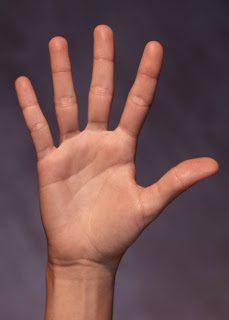Headlines are buzzing about the DSM-5
If you have been reading the mental health headlines over the past couple of days, then for sure you have seen at least one headline dealing with the American Psychiatric Association’s (APA) final approval of the 5th edition of the Diagnostic and Statistical Manual of Mental Disorders (DSM-5). According to the APA website:
Publication of the fifth edition of Diagnostic and Statistical Manual of Mental Disorders (DSM-5) in May 2013 will mark one the most anticipated events in the mental health field.
Cottonwood Tucson’s blog has been following this developing story…
If you are a regular reader of our blog (and we hope you are), then you know this story has been ongoing for a number of years. We have been writing about the upcoming DSM-5 since February 15, 2010. We covered the draft discussions about how the DSM-5 will deal with such diagnoses as substance abuse, autism and Asperger’s, gambling and sex, and post traumatic stress disorder (PTSD).
So what’s “in” and what’s “out” in the DSM-5?
HealthDay’s reporter Amanda Gardner concisely highlighted the most provocative revisions which will be found in the DSM-5:
- “Autistic disorder” will now be known as “autism spectrum disorder,” folding in Asperger’s syndrome (a less debilitating form of autism).
- There will now be a cutoff for symptoms of individuals with the inattentive form of attention-deficit/hyperactivity disorder (ADHD). The new DSM extends the age for symptom manifestation to 14.
- Binge-eating disorder has been bumped up to a bona fide medical condition from one that simply needed “further study.”
- “Disruptive mood dysregulation disorder” is a new condition found in the DSM-5, characterized by “persistent irritability and frequent episodes of behavior outburst three or more times a week for more than a year.”
- Excoriation (skin-picking) disorder and hoarding disorder are new and will be found in the chapter on “obsessive-compulsive and related disorder.”
- Certain people who are experiencing grief can now be diagnosed as having depression.
- “Gender identity disorder” will now be referred to as “gender dysphoria.”
- Dyslexia was not dropped from the DSM-5.
- Excessive “internet gaming” will be in a category of conditions requiring “further research.”
- “Hypersexual disorder” was not added to the DSM-5.
NBC’s Today Show contributor Dr. Gail Saltz discusses some of the DSM-5 changes
If you are having trouble viewing the video, you can see it here.
Stay tuned…
As we have said before…stay tuned. The new DSM-5 is likely to be critiqued by many reviewers. It is going to get very interesting.









